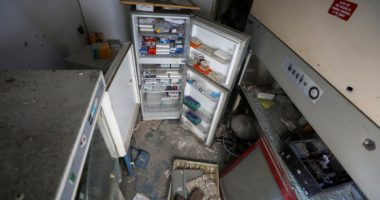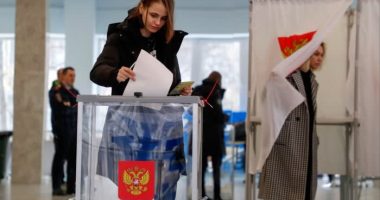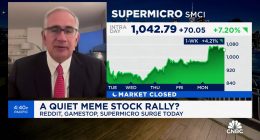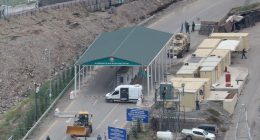Athens, Greece – For General Ben Hodges, who once commanded NATO forces in Europe, the worst-case scenario for Ukraine is for Western powers to “keep doing what we’re doing, exactly right now”.
He told Al Jazeera in an interview on the sidelines of the recent Delphi Economic Conference in Greece that a paralysed US Congress, over-cautious White House administration and fearful allies in Europe constitute a Russian marketing success.
Take the German refusal to send Ukraine 500km-range (310-mile) Taurus missiles.
“That is 99 percent because [Olaf Scholz] is convinced that if [Donald] Trump is [US] president, then he will withdraw the nuclear shield from Europe and turn his back on NATO,” said Hodges, referring to the former US Republican leader who is running again this year.
“Germany then, unlike France and the UK if it ended up in a conflict with Russia over Taurus, would be without a nuclear deterrent.”
Or take the administration of US President Joe Biden, which Hodges described as “unduly scared”.
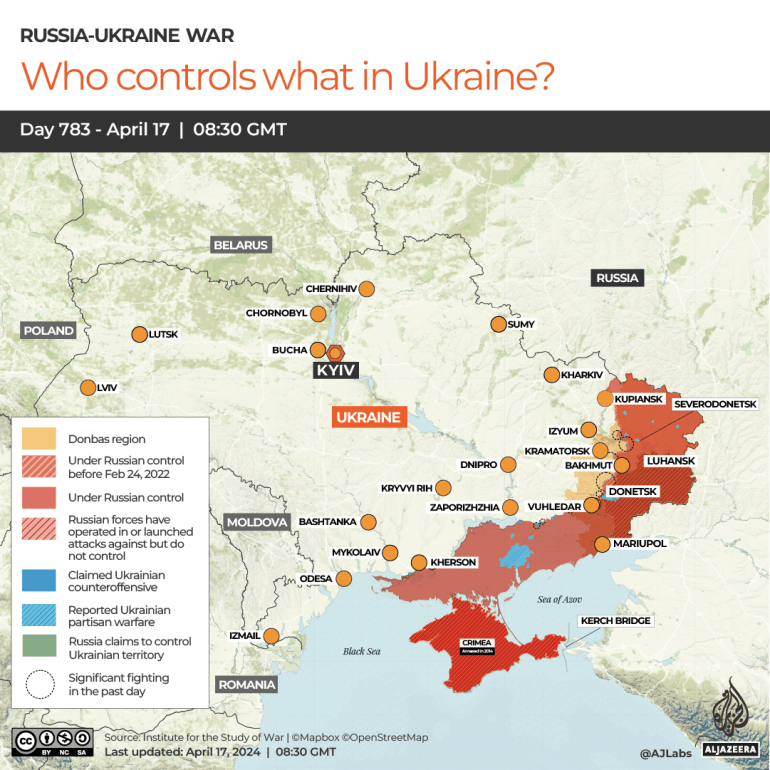
“They think that if Ukraine liberates Crimea, that will lead to the collapse of the regime [of Russian president Vladimir Putin], or that Putin will think he has no choice but to use a nuclear weapon to prevent that from happening,” said Hodges. “I think those are two false, unfounded fears. I hope it does lead to the collapse of the Putin regime. It’s not something we should fear. It’s something we should plan.”
That certain Western leaders believe Russia’s nuclear threats are likely to produce a split in the Western alliance, with less cautious leaders providing more extreme or provocative forms of help to Ukraine, said Hodges.
“I think there is a very real possibility that certain European countries will insert themselves,” he said. “I can imagine Poland, even France, some others, in some way saying, ‘We can’t afford not to do it’.”
French President Emmanuel Macron caused Russia to renew its nuclear threats after he suggested last month that NATO troops on the ground in Ukraine should not be ruled out.
Macron’s generals and foreign policy wonks later finessed that message, suggesting NATO troops could only ever play a supporting role, and not participate in active combat.
Russian forces ‘do not have the capability’
Hodges was deeply sceptical about how well Russia has succeeded in conventional warfare.
Since the fall of Avdiivka in Ukraine’s east on February 17, its forces have “oozed” forward, swallowing several villages, as Ukrainian forces have performed tactical retreats.
“Here we are in April, and [the Russians] are oozing out. Why is that? I think it’s because that’s the best the Russians can do. They do not have the capability to knock Ukraine out of the war.”
Russia, he said, lacked the ability to equip large armoured formations that could move rapidly, with supporting artillery, engineers and logistics.
“I don’t think it exists. That’s why I feel fairly confident that the mission for [Ukrainian] general Oleksandr Syrskyi for the next several months is to stabilise this as much as he can to buy time for Ukraine to grow the size of the army, to rebuild the defence industry of Ukraine, as well as give us time to find more ammunition for them. I think of 2024 as a year of industrial competition. So the army has got to buy time.”
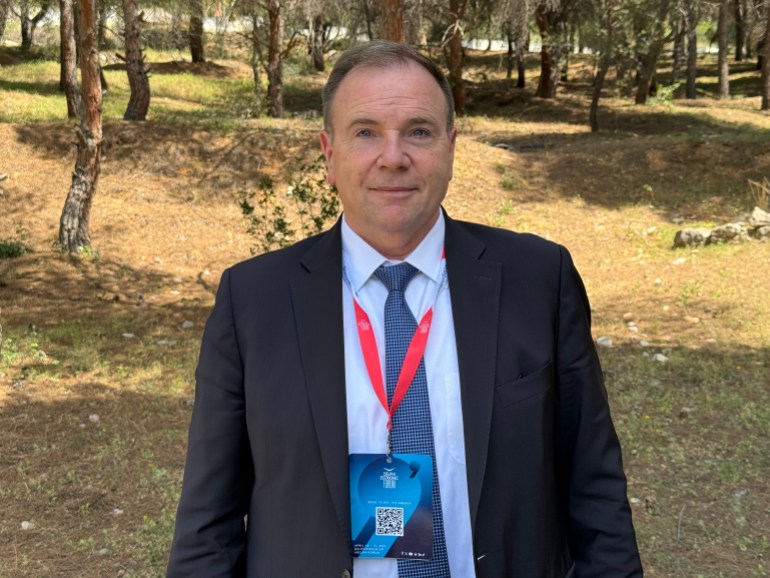
On the day Hodges spoke to Al Jazeera, Ukraine’s parliament passed a new mobilisation law that aimed to raise about 300,000 new troops and bring the standing army to 1.2 million.
Contrary to the punitive measures for avoiding the draft that had circulated, Ukraine doubled down on incentives in the new law, such as free downpayments and lower mortgage rates for front-line soldiers, and a payout of $400,000 if they are killed.
In what may be groundbreaking practice for a European army, Ukraine is also offering incentives for battlefield successes.
“If you damage a Russian weapon you can get from 12,000 hryvnias ($300) to 900,000 hryvnias ($22,700) depending on the weapon and whether you destroyed or took it,” Ukrainian parliamentarian Yulia Klymenko told Al Jazeera.
“For example, if you get a Russian tank, you get [almost] a million hryvnias. And we have enough tractors to steal things.”
In the early days of the war, images of Ukrainian soldiers towing Russian tanks that had run out of fuel using farming tractors were shared widely on social media. These were reconditioned to fight for Ukraine.
Hodges wants Ukraine’s Western allies to closely participate in Ukraine’s bravery and innovative spirit, rather than merely cheerleading it.
The attitude he suggests is simply for allies to adopt Ukraine’s strategic objective – restoring the 1991 borders.
“Nobody believes” the US president any more when he often encourages Ukraine with phrases such as “We’re with you for as long as it takes”, said Hodges.
“‘We’re going to do what it takes’. That’s a statement of a strategic aim that then allows the development of a policy.”
That policy should include giving Ukraine immediately any available old inventory and diverting some new weapons under construction for export.
For instance, Ukrainian President Volodymyr Zelenskyy recently said Ukraine needs 25 Patriot launchers to cover air defence gaps across the entire country.
“The Swiss are the next in line to buy 12 different [Patriot] launchers. The president can say to Raytheon, ‘I’ll protect you in terms of liability, we’ll work with the Swiss, tell them to stand fast, prioritise to Ukraine’,” suggested Hodges.
Russia appears to have done something similar with India, holding back two S-400 air defence systems it was to deliver to New Delhi this year.
Restoring Ukraine’s 1991 borders would include winning back Crimea, the territory Putin annexed in February 2014. “Whoever controls Crimea wins,” said Hodges.
“From here the Russians … can control any part of southern or eastern Ukraine.”
Russia has demonstrated this repeatedly, launching missile and drone attacks on Odesa, Kherson and Zaporizhia from airfields in Crimea.
Hodges clearly believes this war is winnable.
He summed up his attitude: “Stop coming up with excuses, and stop our self-deterrence and hesitating.”
Read More: World News | Entertainment News | Celeb News
Aljazera




